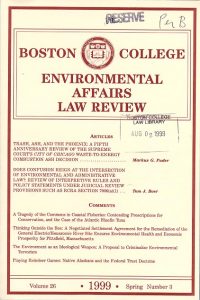
The exploration and exploitation of marine genetic resources for commercial purposes is growing at an unprecedented rate in the Arctic region. Currently, there is no explicit legal framework that governs the participation of Arctic indigenous peoples in this industry or requires that the benefits derived from the scientific use of marine genetic resources are shared with these groups. This Article analyzes to what extent the principles of free, prior, and informed consent and of fair and equitable benefit sharing are considered in relevant international instruments. The United Nations Convention on the Law of the Sea is not sufficient to frame this international issue. Therefore, this Article pays special attention to the scope of indigenous people’s rights as outlined in the International Labour Organization’s Convention (No. 169) Concerning Indigenous Peoples and the United Nations Declaration on the Rights of Indigenous Peoples. This Article incorporates those principles of consent and benefit sharing into the international framework governing the use of biodiversity materials, through the Convention on Biological Diversity and the Nagoya Protocol.
